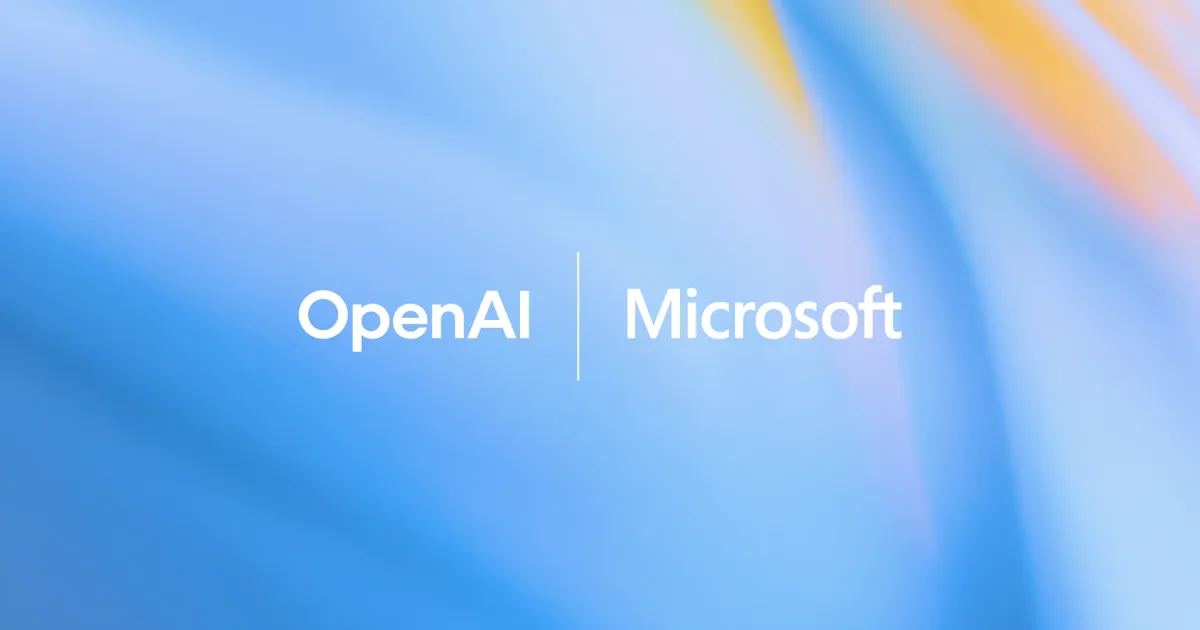OpenAI and Microsoft agree on for-profit restructuring terms

OpenAI announced Thursday that it has reached a non-binding agreement with Microsoft, its largest investor, to restructure its for-profit arm into a public benefit corporation (PBC) — a move that could reshape the AI startup’s governance and fundraising model.
If approved by regulators in California and Delaware, the shift would allow OpenAI to raise more capital from investors and potentially pave the way for a future public listing.
OpenAI’s Nonprofit to Retain Control
In a blog post, Bret Taylor, chairman of OpenAI’s board, said the nonprofit entity that currently controls OpenAI would remain in place and maintain authority over the company’s operations. As part of the agreement, the nonprofit would gain a stake in the PBC valued at more than $100 billion. Other terms were not disclosed.
“Microsoft and OpenAI have signed a non-binding memorandum of understanding (MOU) for the next phase of our partnership,” the companies said in a joint statement. While not legally binding, the MOU outlines both sides’ intentions as they work toward a definitive contract.
A Unique Governance Challenge
The agreement follows months of tense negotiations between OpenAI and Microsoft over the company’s future structure. OpenAI’s unusual governance — where a nonprofit board controls its for-profit arm — has been the source of both resilience and controversy.
That governance model enabled the nonprofit board to fire CEO Sam Altman in 2023, only to reinstate him days later after employee pushback and investor pressure. Several board members resigned in the aftermath, but the structure remains intact.
Shifting Dynamics With Microsoft
Microsoft has been OpenAI’s closest partner since first investing in 2019, gaining preferred access to OpenAI’s technology and serving as its main cloud provider. But OpenAI’s business has grown dramatically, and the startup has sought greater independence.
Recent deals underscore this effort. OpenAI signed a $300 billion, five-year cloud contract with Oracle, set to begin in 2027, and partnered with SoftBank on its Stargate data center initiative.
At the same time, frictions with Microsoft have escalated. Reports suggest disagreements over technology control — including OpenAI’s failed acquisition of AI coding startup Windsurf — strained relations. Windsurf’s founders later joined Google, while the rest of its team was acquired by Cognition.
Legal and Competitive Pressure
The restructuring talks also intersect with outside pressures. Elon Musk’s lawsuit against OpenAI, which accuses the company of abandoning its nonprofit mission, highlights the for-profit transition as a central issue. Earlier this year, Musk made a $97 billion takeover bid for OpenAI, which the board rejected. Notably, the nonprofit’s new stake under the Microsoft agreement is larger than Musk’s offer.
Other nonprofits, including Encode and The Midas Project, have voiced concerns that OpenAI’s move to a for-profit model undermines its stated mission to develop artificial general intelligence (AGI) that benefits humanity. OpenAI has pushed back, suggesting some of these groups may be backed by rivals such as Musk or Meta’s Mark Zuckerberg — claims the organizations deny.
Next Steps
Taylor noted that OpenAI and Microsoft will “continue to work with the California and Delaware Attorneys General” to finalize the transition plan. Regulatory approval will be key before any definitive agreement takes effect.
If the deal moves forward, OpenAI could emerge not just as a leading AI company but also as one of the largest public benefit corporations in history, with a nonprofit stakeholder holding an unprecedented level of influence in Silicon Valley.





